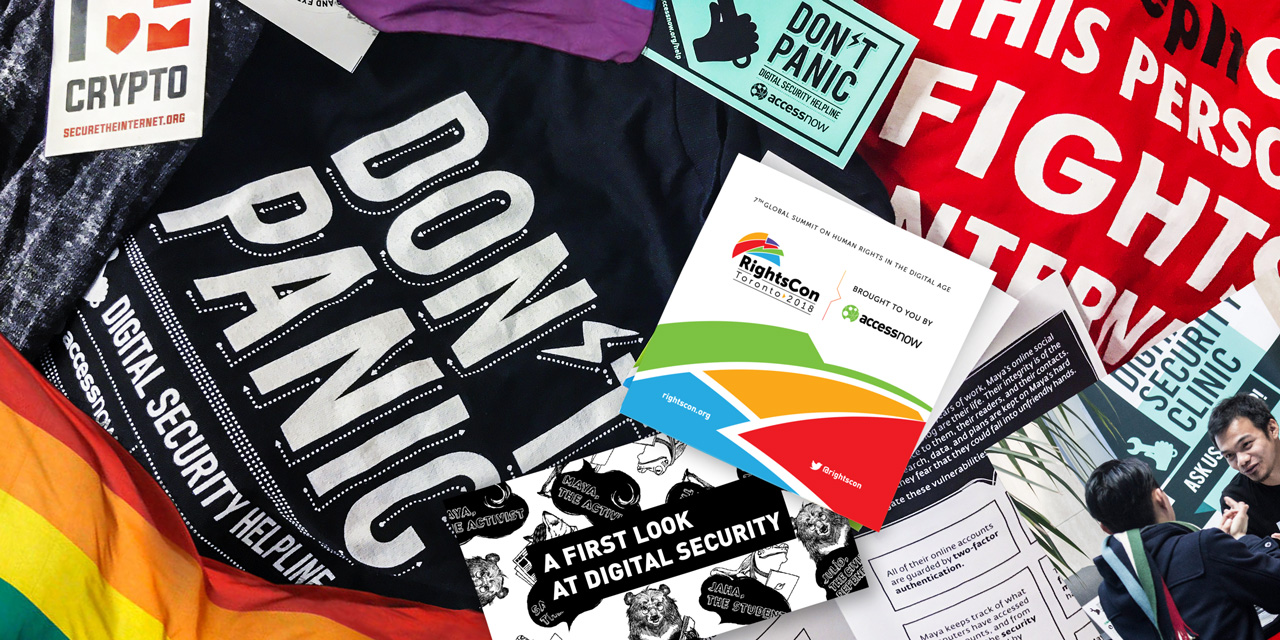 This post is the second in a series being hosted by TechSoup Canada, whose mission is to help Canadian nonprofits, charities, and libraries achieve greater impact through the effective use of technology. TechSoup Canada does this by connecting nonprofits to affordable technologies, so they can invest the majority of their resources into their mission, and by providing valuable learning resources so nonprofits can make smart technology decisions.
This post is the second in a series being hosted by TechSoup Canada, whose mission is to help Canadian nonprofits, charities, and libraries achieve greater impact through the effective use of technology. TechSoup Canada does this by connecting nonprofits to affordable technologies, so they can invest the majority of their resources into their mission, and by providing valuable learning resources so nonprofits can make smart technology decisions.
In our last blog post for TechSoup Canada, we talked about how technology affects human rights for all. It both expands our ability to exercise our rights and facilitates new ways that they can be infringed. You can see evidence of how technology is changing our relationship to free expression, for instance, all around the world, from the growing prevalence of false news and disinformation coming out of Syria, to internet shutdowns in the Anglophone regions of Cameroon.
By building our awareness of how our human rights are impacted online, we can become better equipped to protect and extend them. In Canada, we need only look at the current headlines to see proof that there are pressing digital rights issue — existing and emerging — facing communities across the country. Read on for a look at some of the digital rights debates that are now impacting Canadians:
Closing the digital divide in rural and indigenous communities
When residents cannot access or connect to adequate internet infrastructure, they’re unable to realize the full positive potential of technology. In late 2016, Canada’s broadcasting and telecommunications regulatory body, CRTC, took a positive step forward declaring broadband internet access a basic service for Canadians everywhere. Yet, in remote northern areas of the country, internet service is still unreliable and expensive, meaning many communities are far worse off than their more southern counterparts.
Ensuring privacy and data protection in smart city projects
Last year, the Alphabet company Sidewalk Labs announced its first public project for Toronto, Canada’s largest city. A joint effort with Waterfront Toronto, the project seeks to “combine forward-thinking urban design and new digital technology” to create an unprecedented smart city neighbourhood. Community networks and organizations in Toronto have asked several important questions about the development and its governance, raising concerns about the privacy of Toronto residents and calling for transparency and accountability in how data will be collected, used, and protected.
Defending a free and open internet
In February, a coalition of organizations led by Bell Media submitted a proposal to CRTC asking them to create the “Internet Piracy Review Agency,” a body which would be able to identify and block websites engaged in online piracy. Experts and civil society organizations say the proposal will lead to censorship, calling it “ill-advised and dangerous” with the potential to violate the right to freedom of expression and the principles of Net Neutrality.
Building a rights-respecting framework for AI
In the past year, Canada has positioned itself as an emerging global leader in the field of Artificial Intelligence and machine learning. In 2017, the Government of Canada announced the $125-million “Pan-Canadian Artificial Intelligence Strategy.” A number of the world’s leading AI experts hail from Montreal and Toronto, and the cities have become hotbeds for tech startups. Yet in addition to financial investment, the rapid development of these advanced technologies require ethical frameworks for ensuring existing societal biases are not coded into algorithms. For this reason, organizations like Access Now and Amnesty International are coming together to create The Toronto Declaration, which will define universal principles for promoting equality and protecting the right to non-discrimination in machine learning.
Calling for corporate responsibility and transparency
How can we ensure Canadian businesses are accountable to human rights in their work at home and abroad? This is one of many important policy considerations emerging from a new report by the University of Toronto’s Citizen Lab, which provides evidence that the Canadian company Netsweeper continues to sell filtering services to governments around the world. This technology is being used to censor the internet, in particular access to news, LGBTQ+ resources, and more.
In all of these issues, nonprofits, civil society organizations, businesses, government, and individuals will be vital in shaping a rights-respecting digital future. This year, for the first time, Access Now is bringing RightsCon, the world’s leading summit on human rights in the digital age, to Canada. Taking place in Toronto from May 16-18, 2018, it represents an unparalleled opportunity to learn about and advocate for your digital rights on issues like these. There are 450+ unique sessions over 3 days of full programming that you can choose from.
Even more important is the opportunity for connection and conversation. Joining RightsCon’s global community are Canadian government representatives, business and tech leaders, and globally recognized human rights organizations: Open Media, Citizen Lab, Global Affairs Canada, Ontario Digital Service, Code for Canada, Psiphon, International Development Research Centre, the SecDev Foundation, and many, many more.
